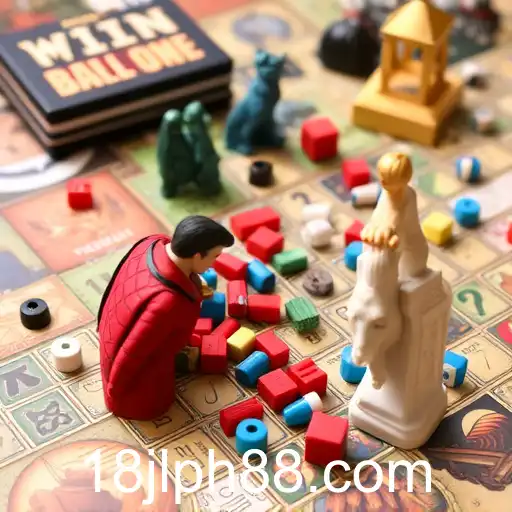18jl | Exploring the Timeless Appeal of Board Games

Board games have been a cherished pastime for generations, captivating players with their blend of strategy, chance, and social interaction. The resurgence of interest in board games over the past decade highlights their enduring appeal, in part fueled by nostalgia and a desire for face-to-face engagement in an increasingly digital world.
The classic charm of board games lies in their ability to bring people together, transcending age and background. From the cutthroat deal-making of 'Monopoly' to the cooperative problem-solving of 'Pandemic,' board games offer diverse experiences that cater to a wide range of interests and skill levels. Players are drawn into intricate worlds where they can test their strategic thinking, decision-making, and sometimes, their friendships. It's this blend of complexity and accessibility that makes board games uniquely attractive.
Moreover, the board game industry has experienced a renaissance with the advent of crowdfunding platforms and independent publishers, leading to an explosion of creativity and innovation. Games like 'Catan,' which revitalized the genre in the 1990s, paved the way for new mechanics and themes, attracting a global demographic. It's now common to find board games that explore complex narratives and themes, from colonialism to environmental conservation, offering players an experience that is both entertaining and thought-provoking.
The tactile nature of board games also adds to their appeal. In a world dominated by screens, there's a distinct pleasure in handling game pieces, shuffling cards, and rolling dice. This tangible interaction with the game elements can create a more immersive experience, drawing players deeper into the gameplay.
Educators and psychologists have also recognized the benefits of board games, noting their ability to improve cognitive skills such as memory, problem-solving, and critical thinking. They can also enhance social skills, such as communication and cooperation, making them valuable tools in both education and therapy settings.
In summary, the category of 'Board Games' on various platforms signifies more than just a collection of games. It represents a cultural phenomenon that continues to evolve, adapting to contemporary tastes while preserving its core appeal. Whether as a tool for bonding with friends and family, a medium for narrative exploration, or a means to hone cognitive abilities, board games continue to captivate audiences around the world.



